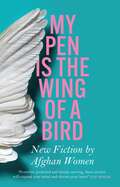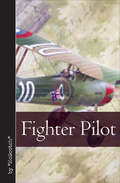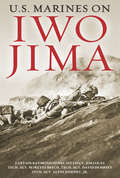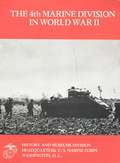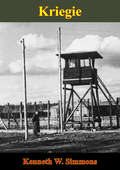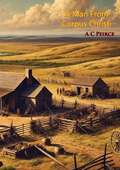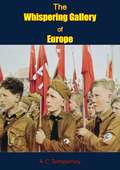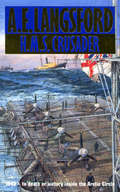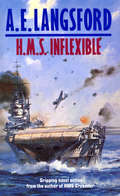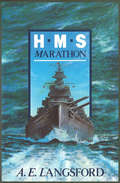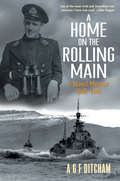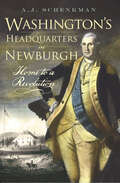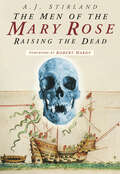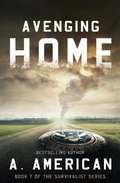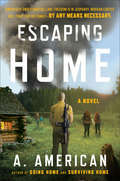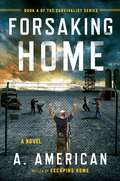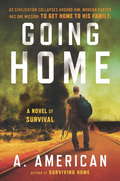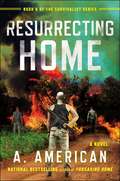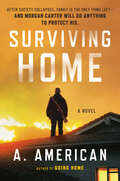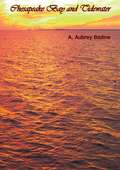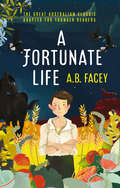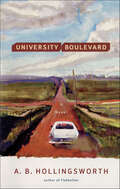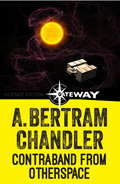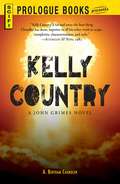- Table View
- List View
My Pen is the Wing of a Bird: New Fiction by Afghan Women
by"Powerful, profound and deeply moving, new fiction by Afghan women writers will expand your mind and elevate your heart" ELIF SHAFAK"Written in simple, direct prose and offers vivid snapshots of a country beset by war and violence . . . It seems more important than ever to read the work of these courageous writers" Financial Times"My pen is the wing of a bird; it will tell you those thoughts we are not allowed to think, those dreams we are not allowed to dream"A woman's fortitude saves her village from disaster. A teenager explores their identity in a moment of quiet. A petition writer reflects on his life as a dog lies nursing her puppies. A tormented girl tries to find love through a horrific act. A headmaster makes his way to work, treading the fine line between life and death."A precious collection of work, the first and maybe the last of its kind. My Pen Is the Wing of a Bird is a huge accomplishment" MONIQUE ROFFEY, author of The Mermaid of Black ConchMy Pen Is the Wing of a Bird is a landmark collection: the first anthology of short fiction by Afghan women. Eighteen writers tell stories that are both unique and universal - stories of family, work, childhood, friendship, war, gender identity and cultural traditions."This book reminds us that everyone has a story. Stories matter; so too the storytellers. Afghan women writers, informed and inspired by their own personal experiences, are best placed to bring us these powerful insights into the lives of Afghans and, most of all, the lives of women. Women's lives, in their own words - they matter." Lyse Doucet in her IntroductionThis collection introduces extraordinary voices from the country's two main linguistic groups (Pashto and Dari) with original, vital and unexpected stories to tell, developed over two years through UNTOLD's Write Afghanistan project. My Pen Is the Wing of a Bird comes at a pivotal moment in Afghanistan's history, when these voices must be heard.With an Introduction by BBC Chief International Correspondent Lyse Doucet and an Afterword by Lucy HannahABOUT UNTOLD UNTOLD is a writer development programme for marginalised writers in areas of conflict and post-conflict. Afghanistan has millions of Pashto and Dari speakers with little or no local support for creative writing, literary translation, or literary editing. Support for writers has been hampered by cultural norms, free expression issues, chronic instability, and internal displacement. UNTOLD has been working one-to-one with women on their short stories, with English-speaking literary editors and translators working with the writers to realise the potential of their stories for publication both locally and globally in translation.
Fighter Pilot (Vintage Aviation Library)
by "McScotch" Mannock&“McScotch&” himself describes his book and pays tribute to a colleague in this note, which appears at the front of the volume: &“This book consists of the reminiscences of an ordinary fighter pilot of the R.F.C. who had the privilege of serving in one of the leading Fighter Squadrons and who had the honor of being the friend of the supreme fighter of all the Air Forces, that indomitable and lovable patriot, &‘MICK&’ MANNOCK, V.C., D.S.O., M.C.&” Available records and publications show &“McScotch&” himself as a fighter pilot with 40 Squadron, holding the rank of lieutenant and then captain. He is credited with 12 kills of German opponents. This is a detailed and exciting account of squadron life and shows the bravery and true comradeship of these flyers.
U.S. Marines on Iwo Jima
by Captain Raymond Henri 1st Lieut. Jim G. LucasThe US Marines on Iwo Jima, first published in 1945, and written by five on-the-scene combat correspondents, is a highly readable account of the invasion by U.S. Marines of this tiny yet strategically important volcanic island. The book is based on each author's own observations while on the island, plus the experiences of dozens of men involved in various aspects of the intense fighting. Presented in chronological order, the battle unfolds from the initial D-Day air force bombings and naval barrage, to the amphibious assault, to the slow gains made each day as the Marines inched forward under heavy fire. Despite its small size, Iwo Jima was considered the most heavily fortified island in the world, supporting thousands of nearly bomb-proof shelters and caves, hundreds of reinforced machine-gun, mortar, tank, and artillery positions, and more than 20,000 fanatical Japanese defenders. Included is a roster of Marines killed or missing in the battle, plus 12 maps and 32 pages of photographs.
The 4th Marine Division In World War II
by 1st Lieut. John C. ChapinThe major ground component of the active Marine Corps Reserve is the 4th Marine Division, Fleet Marine Force. The combat record of this division in World War II was exemplary; in the short space of one year it participated in four major amphibious assaults and won two presidential citations. The interest in its battle record among the reservists who now serve in its ranks has prompted the republication of this brief history, originally published in August 1945 and reprinted in 1974. This new reprint contains a brief history of the reserve 4th Division, written by Colonel Joseph B. Ruth, USMCR, a former member of the 25th Marines. Also included are copies of the division's lineage and honors, a list of its commanders, and a list of its units and their locations.The author of the 1945 history, then First Lieutenant John C. Chapin, served in the 3d Battalion, 24th Marines of the 4th Division. Assigned to the Historical Division when he recovered from wounds received in combat in Saipan, he completed this history and a similar one of the 5th Marine Division before his release from active duty.--E.H. Simmons, Brigadier General, U. S. Marine Corps (Ret.), Director of Marine Corps History and Museums
Kriegie
by 2nd Lieut. Kenneth W. SimmonsKenneth W. Simmons was a bombardier onboard one of the B-24 liberators of 389th Bombardment Group stationed in Europe during the Second World War. As the war ground to a close he had the sheer bad luck to be shot down in October 1944 near Bad Kreuznach and was captured and made prisoner of war. In this book he gives a vivid description of the life of POWs in the American section of Stalag Luft III (in what is now Poland) during the final months of the war, ending with the winter forced-march away from the camp, escaping the advancing Russian troops, and eventually being liberated.
A Man From Corpus Christi: Or The Adventures Of Two Bird Hunters And A Dog In Texan Bogs (classic Reprint)
by A C PeirceIn "A Man From Corpus Christi," A. C. Peirce presents a riveting account of life on the American frontier through the eyes of a rugged and resourceful protagonist. This captivating narrative immerses readers in the wild, untamed landscapes of Texas, capturing the essence of a bygone era marked by adventure, danger, and the relentless pursuit of justice.The story follows the journey of a man from Corpus Christi, whose indomitable spirit and unwavering determination set him apart in a land where only the strong survive. Peirce's protagonist embodies the quintessential frontiersman, navigating the challenges of frontier life with a blend of cunning, courage, and a deep sense of morality.Set against the backdrop of the expansive Texan frontier, "A Man From Corpus Christi" delves into the complexities of life in the 19th century American West. The book vividly portrays the harsh realities faced by settlers, lawmen, and outlaws alike, weaving a rich tapestry of conflict, camaraderie, and the constant struggle for survival. Peirce's detailed descriptions and evocative prose bring the frontier to life, allowing readers to experience the grit and grandeur of this iconic period in American history.As the protagonist grapples with personal demons and external threats, his journey becomes a powerful exploration of identity, redemption, and the unyielding human spirit. Peirce masterfully blends historical authenticity with compelling storytelling, creating a narrative that is both informative and deeply engaging."A Man From Corpus Christi" is more than just a tale of adventure; it is a tribute to the rugged individuals who shaped the American frontier. Peirce's keen insights and rich characterizations offer readers a profound understanding of the challenges and triumphs of frontier life. This book is a must-read for history enthusiasts, fans of Westerns, and anyone who appreciates a well-told story of resilience and heroism.Join A. C. Peirce on an unforgettable journey through the wilds of Texas, where every page brims with the spirit of adventure and the timeless quest for justice and freedom. "A Man From Corpus Christi" is a timeless classic that continues to resonate with readers, celebrating the enduring legacy of the American frontier.
The Whispering Gallery of Europe
by A C TemperleyThe Whispering Gallery of Europe, which was first published in 1938, comprised the personal records and opinions of a man who had been close to matters of international moment. Politics were an absorbing interest to the author and he has made this book a very vital record.General A. C. Temperley was one of the chief British representatives at Geneva during the ten years of discussions on disarmament and during this period he was military adviser to four Foreign Secretaries. In a foreword, The Right Honourable Anthony Eden says, “The position you held as chief military adviser gave you exceptional opportunities for contacts with other delegates and you made splendid use of them. Your patience, experience and impartiality were everywhere recognised until you became something in the nature of an arbiter at Geneva.”The failure of the League of Nations to fulfil the expectations so hopefully awaited can be readily understood after reading The Whispering Gallery of Europe. A. C. Temperley tells of lack of leadership and academic discussion which could not look beyond the immediate problem to take a long view.
Hms Crusader
by A E LangsfordDeath by fire - Death by ice. These were the twin threats confronting the seamen on the North Atlantic convoys: fire from the Luftwaffe's bombs, and from the torpedoes of the lurking U-Boats: ice in the deadly cold waters that could kill in three minutes, five minutes at most.Between these two hells lived another threat: the slow paralyzing hand of fear.
Hms Inflexible: The war in the Pacific is reaching its climax…
by A E Langsford1945. The battle against Japan in the Pacific is reaching its climax. One way or another, Inflexible will be Captain Thurston's last command of the war.Captain Thurston VC is a navy man to his bones. Offered a cushy office job to see out the last months of the war, he resists: instead he's handed command of HMS Inflexible, a proud and powerful aircraft carrier.It is no easy task. The overwhelming determination of the Japanese fighters and the cruel weather conditions make Thurston's command fraught with difficulties, but the struggle to provide air support for the US and Commonwealth troops must continue.Home is on the other side of the world, barely a reality, and Thurston finds that he is striving to do the right thing, not only as the Captain of the Inflexible but also in his private life. For a while he and his men are under daily attack from a deadly enemy, Thurston is plagued by feelings of guilt and remorse for the woman he has left behind.A. E. Langford's compelling naval adventure is an evocative account of life at sea during one of the most perilous and hard-fought battles of this century.
Hms Marathon
by A E Langsford1942: The Mediterranean. The war at sea is at its most intense. Operation Stonehenge gets under way - a convoy laden with desperately needed fuel, food and ammunition for the besieged island of Malta sets sail. Captain Robert Thurston commands the cruiser HMS Marathon, one of the escort vessels on this Malta run. Thurston is a career officer with a record of conspicuous gallantry under fire, from Jutland to the North Atlantic convoys. But he is also a man under stress - in the last three years he has seen one ship go to the bottom, leaving pitifully few survivors; he has seen his closest friends and shipmates killed and maimed; he has carried the impossibly heavy burden of responsibility for his men's welfare in the bloody destruction of war at sea.And soon another cause for concern is added to his worries - Marathon is crippled by enemy action and forced to limp towards Alexandria, a constant target for attack by sea and air, vulnerable to the weather and to the enemy alike. Men and machines are stretched to their limit - but the most deadly threat to Thurston's own life and career is yet to be faced.
A Home on the Rolling Main: A Naval Memoir 1940-1946
by A G DitchamThis WWII memoir of a Royal Navy Lieutenant offers a vivid account of maritime combat throughout the European Theater. From first joining the Royal Navy in 1940 until the end of the campaign against Japan, Tony Ditcham was in the front line of the naval war. He served aboard the battlecruiser HMS Renown in the North Sea and Gibraltar. Serving on destroyers in most of the European theatres, he saw action against S-boats and aircraft off Britain's East Coast, on Arctic convoys to Russia, and eventually in a flotilla screening the Home Fleet. During the Battle of the North Cape, Ditcham was one of the first men to actually see the German battleship Scharnhorst, and he vividly describes watching it sink from his position in the gun director of HMS Scorpion. Later his ship operated off the American beaches during D-Day, where two of her sister ships were sunk. En route to the Pacific Theater, his combat service ended with the surrender of Japan. Written with humor and colorful descriptive power, Ditcham&’s account of his incident-packed career is a classic of naval memoir literature.
Washington's Headquarters in Newburgh: Home to a Revolution (Landmarks Ser.)
by A J SchneckmanWe know that Widow Hasbrouck opened her home to Washington in 1782, but the Hasbrouck family history itself has been distorted over the years by myths and legends. Much like the story of Washington chopping down the cherry tree, legend has it that the Hasbroucks and Washington would take a daily sojourn to the family orchards, where Jonathan Hasbrouck would first taste the general's fruit to ensure it was not poisoned. The truth is that Jonathan and Washington never met. In this revealing book, A.J. Schenkman finally dispels the rumors and relates the history of a prominent Newburgh family whose homestead ultimately became the nation's first publicly owned historic site in 1850.
The Men of the Mary Rose: Raising the Dead
by Robert Hardy A J StirlandThe Mary Rose was one of King Henry VIII's favourite warships until she sank during an engagement with the French fleet on 19 July 1545. Her rediscovery and raising were seminal events in the history of nautical archaeology. Apart from the Captain and the Vice Admiral, nothing is known about the crew of the Mary Rose - the only evidence about her complement of 415 men rests with their skeletal remains. In The Men of the Mary Rose A.J. Stirland uses archaeological and skeletal evidence to give the reader a welcome insight into the soldiers of the Mary Rose, from their ages and height to their health, diet and physical condition. This book examines the building, sinking and raising of the Mary Rose and her historical context, before moving on to the examination of what the remain of the crew can reveal to us about the fighting men of that period. Many new findings have been made through analysis of their bones, including the effects of some activities and occupations on the skeletons of the men. This is the first book to deal with the men who made up the crew of the Mary Rose. It provides an exciting glimpse of Tudor life and the Tudor navy, relating archaeological findings to existing documentary evidence, opening a fascinating window into one of Henry VIII's great ships and a frozen moment of sixteenth-century time. This book will appeal both to professionals in the area, and to those for whom Tudor history holds a general fascination.
Avenging Home (The Survivalist Series #7)
by A. AmericanBooks 7 of the Survivalist Series follows Morgan and group as they fight to remove the DHS threat from the area. But there are bigger forces coming into play that will change everything.
Escaping Home: A Novel (The Survivalist Series #3)
by A. AmericanBook 3 of The Survivalist Series When society ceases to exist, who can you trust? After the collapse of the nation's power grid, America is under martial law--and safety is an illusion. As violence erupts around him, Morgan Carter faces one of his most difficult decisions yet: whether to stay and defend his home, or move to a more isolated area, away from the prying eyes of the government. He and his family are hesitant to leave their beloved Lake County, but with increasingly suspicious activities happening in a nearby refugee camp, all signs point towards defecting. Morgan and his friends aren't going to leave without a fight, though--and they'll do anything to protect their freedoms. From the author of the hit survivalist novels Going Home and Surviving Home, Escaping Home describes the struggle to live in a world with no rules, and how, sometimes, the strength of family is the only thing that can pull you through.
Forsaking Home
by A. AmericanBook 4 of The Survivalist Series They survived the collapse, but can they survive the aftermath? Morgan Carter has weathered the weeks after the collapse of the nation's power grid, reuniting with his family and ensuring their safety, but his struggle isn't over yet. Carter must focus on survival in an increasingly unstable society--but the challenges he faces are beyond his wildest imagination. Meanwhile, the enclosed quarters of the nearby government-run refugee camp make for an environment where injury, assault and murder are the norm. As Jess creates trouble within the camp, Sarge and his crew plot to take down the entire establishment. From the author of the hit Survivalist Series books, Forsaking Home is an action-packed adventure that depicts the harrowing possibilities of a world gone awry, and the courage it takes to protect what matters most.
Going Home: A Novel (The Survivalist Series #1)
by A. AmericanBook 1 of The Survivalist Series If society collapsed, could you survive? When Morgan Carter's car breaks down 250 miles from his home, he figures his weekend plans are ruined. But things are about to get much, much worse: the country's power grid has collapsed. There is no electricity, no running water, no Internet, and no way to know when normalcy will be restored--if it ever will be. An avid survivalist, Morgan takes to the road with his prepper pack on his back. During the grueling trek from Tallahassee to his home in Lake County, chaos threatens his every step but Morgan is hell-bent on getting home to his wife and daughters--and he'll do whatever it takes to make that happen. Fans of James Wesley Rawles, William R. Forstchen's One Second After, and The End by G. Michael Hopf will revel in A. American's apocalyptic tale.
Resurrecting Home
by A. AmericanBOOK 5 OF THE SURVIVALIST SERIES Against all odds, Morgan Carter and his family have endured despite the deteriorating conditions surrounding them. Armed with survivalist tactics, Morgan's crew, alongside their new friends from the recently-liberated DHS camp, have worked together to build a sustainable communuity. But not all situations can be prepared for. When a massive wildfire threatens their very existence, they must decide: fight or flight? From the author of the hit Survivalist Series books, Resurrecting Home is an action-packed adventure that depicts the harrowing possibilities of a world gone awry, and the courage it takes to protect what matters most.
Surviving Home: A Novel (The Survivalist Series #2)
by A. AmericanBook 2 of The Survivalist Series No electricity. No running water. No food. No end in sight. If life as you knew it changed in an instant, would you be prepared? In A. American&’s first novel, Going Home, readers were introduced to Morgan Carter, the resourceful, tough-as-nails survivalist who embarks on a treacherous 250-mile journey across Florida following the collapse of the nation&’s power grid. Now reunited with his loving wife and daughters in this follow-up to Going Home, Morgan knows that their happiness is fleeting, as the worst is yet to come. Though for years Morgan has been diligently preparing for emergency situations, many of his neighbors are completely unready for life in this strange new world—and they&’re starting to get restless. With the help of his closest companions, Morgan fights to keeps his home secure—only to discover shocking information about the state of the nation in the process. Fans of James Wesley Rawles, William R. Forstchen's One Second After, and The End by G. Michael Hopf will revel in A. American's apocalyptic tale.
Chesapeake Bay and Tidewater
by A. Aubrey BodinePerfect sequel to "My Maryland," Bodine's best-selling pictorial tribute to the Free State, and his latest, "The Face of Maryland." But this is more than a sequel: it is the first published photographic documentary of the Bay. A beautiful and graphic story of the "Mediterranean of America"…its tributaries and shores which reach into Maryland, Delaware, Virginia and the District of Columbia.In more than 35 years of capturing the Bay in its many moods, Bodine has made thousands of photographs of this alluring body of water. His finest appear in "Chesapeake Bay and Tidewater.""...more than a collection of superb photographs…a book with a theme, interpreting with fidelity not only the mood but also the meaning and significance of the Chesapeake Bay country."-RACHEL CARSON
A Fortunate Life: for Younger Readers (Penguin Australian Classics Ser.)
by A. B. FaceyBert Facey saw himself as an ordinary man, but his remarkable story reveals an extraordinary life lived to the full. Bert Facey was a battler, ever optimistic and hopeful despite the hardships of his life. A true classic of Australian literature, his simply written autobiography is an inspiration. This edition has been specially adapted for young readers.
University Boulevard: A Novel
by A. B. HollingsworthChipper DeHart and court jester Peachy Waterman, Jr. leave the dry-boned village of El Viento, Oklahoma, to start life anew as college freshmen and fraternity brothers. It's 1967, and while the world is turning topsy-turvy, the twosome seeks refuge within the walls of Sigma Zeta Chi. But Peachy's bid to pledge doesn't come easy; in fact, he finagles his way into the frat house, along with the first non-white to ever pledge a college fraternity in Oklahoma, a full-blood Kickapoo Indian named Larry Twohatchets. And when the pledge class seems it couldn't take on one more misfit, along comes Smokey Ray Divine, a golfing hippie that lives on the razor's edge. Amy, Audora, and Cassie are the three muskarettes who steer the boys through college life, helping to protect them from the Vietnam tentacles that keep trying to reach through the windows of the fraternity house and pull the members into the jungle. But as the fraternity men cope by building their walls thicker and thicker, they discover that the enemy comes from within. Over the course of their four college years, faith is born through the death of their dreams. The Age of Aquarius meets The Age of Apollo in this flirtation with a mystical college life on University Boulevard.
Contraband from Otherspace
by A. Bertram ChandlerA deadly cargo that threatens to sheer through the fabric of reality, like a knife through soft butter.
Contraband from Otherspace (John Grimes)
by A. Bertram ChandlerA deadly cargo that threatens to sheer through the fabric of reality, like a knife through soft butter.
Kelly Country
by A. Bertram ChandlerAn If-Of-History Novel The United States won its independence in 1776, and the world has never been the same since. What if Australia had followed suit? How would our world have been different? That's the theme that fascinated A. Bertram Chandler who saw, in the famous Ned Kelly, the possibility of an Australian Washington. For Ned Kelly was not just a lawless bushranger. He was a man of unusual imagination who created his own armor, gathered a band of Irish rebels, and took arms against the frontier law of old Australia. Now, by time machine and calculated interference, a certain 20th Century John Grimes goes back and alters history. Kelly survives! Utilizing the hidden discoveries of science, Kelly helps an Austrailian-Irish Republic rise from Down Under!
